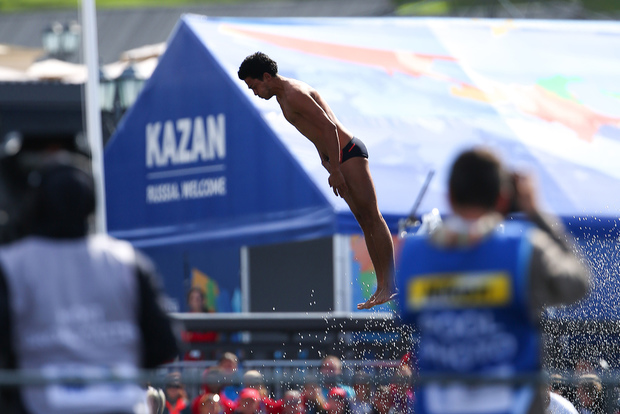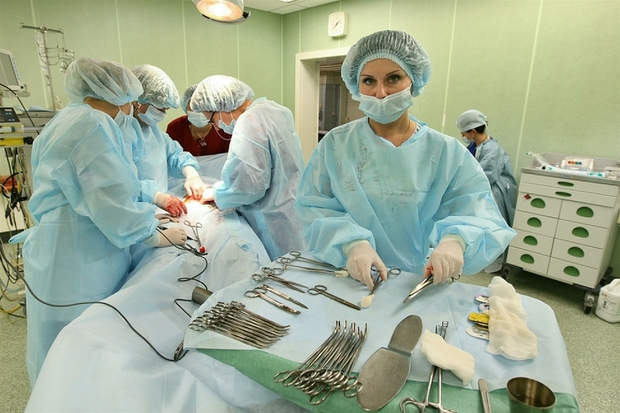Economy of Tatarstan: budget under pressure
Despite extremely low oil prices, consolidated budget of Tatarstan has been in surplus
Analyzing the execution of the consolidated budget of Tatarstan according to the first quarter of 2016, an economic reviewer of Realnoe Vremya online newspaper Albert Bikbov noted with satisfaction how the financial authority of the republic managed to cope with and run the budget surplus without being indebted. It was completely justified by the current uneasy financial situation, though it was done by means of priority financing of the most urgent costs.
Pressure of extremely low oil price
Incomes of the consolidated budget of Tatarstan for the first quarter of 2016 made up 45,2bn rubles, which is 6.3bn rubles lower, that is to say, the reduction is 12,2%, compared with the first quarter of 2015.
But not everything is too sad – own incomes of the consolidated budget of Tatarstan (without interbudgetary transfers from Moscow) dropped lower – by 2,2bn rubles or 5,0%.
And it all happened in the conditions of the economic storm – extremely low prices in January 2016!
As you can see, the budget of Tatarstan has been relatively resistant to such a strong shock.
The main tax in Tatarstan – taxable profit – fell by 24.2% and is equal to 12,5bn rubles.
Reduction of income tax receipts of organizations of the petrochemical sector affected the decrease in corporate tax payments. It was an impact of a rapid fall in world oil prices to extremely low figures in January 2016 when prices for Brent crude oil dropped to $27-28 per barrel.
The sum of the profit in petrochemistry was equal to 18,0bn rubles only in January-February 2016, while the total profit in 2015 was 24,4bn rubles. As you see, there are 6,4bn rubles of lost profit. It is a good thing to be at least in surplus!
And it was very impactful: an average oil price for Urals has reduced by 39,36% and made up $31,99 per barrel. It should be reminded that an average price for Urals crude oil was $52,76 per barrel in the first quarter of 2016.
This almost 40% reduction of world oil price was partially compensated by devaluation.
So, an average nominal US dollar rate in the first quarter of 2016 increased by 20,0%, compared with 2015, and made up 74,6 rubles. The growth of euro is less – + 17%.
Even a physical augmentation of the extraction in these conditions made the situation look better just a bit. For instance, Tatneft extracted 6,9m tonnes for three months (105,5% by 2015, +363,000 tonnes).

Income tax receipts of natural persons in January-March 2016 has increased by 13,08% (+1,7bn rubles) in comparison with the same period in 2015 and is 14,0bn rubles. It is conditioned by salary increase and payment of dividends by a number of large organizations of the republic. Moreover, a growth of the number of employees working in projects under construction within the scope of realization of investment projects, including additional payments based on the results of control events, favoured the growth of income tax in January-March 2015.
A weak positive dynamics of excises (+2,1%) is conditioned by a strong decrease in excise receipts on straight-run gasoline – by 1,7bn rubles – and excises on benzene, para-xylene, orto-xylol by 351,1m rubles, which is explained by use of tax deduction of these excises multiplied by the corresponding coefficient. At the same time, there is a growth of excise receipts on diesel fuel by 56,4% (+752,0m rubles) caused by the increase of its production.
The volume of interbudgetary transfers from the Russian Federation reduced by 3,9bn rubles, compared with last year's period. There was an urgent financing of events connected with the preparation and organization of the 16th FINA World Championships in Kazan in 2015. 3bn rubles were presupposed to be expended for this purpose from the budget of the Russian Federation (enactment as from 18 March 2015 No.248). So after the departure of the 'sports component' after 2015, the 'brook' of federal subsidies significantly reduced.

Costs: cutting everything supposed to be of low priority
It is clear that they had to economize because of lost profits. The spending of the budget in the first quarter had a shortfall, compared with the analogous period in 2014, is significant – by 5,0bn rubles or, more precisely, 10,2%.
This is why they managed to run even the budget surplus. This way, the incomes exceeded the costs. It is little, of course, in comparison with the first quarter of 2015, when the surplus of the budget was 2,5bn rubles. But don't forget the extremely difficulty of January 2016 for the economy!
The budget surplus cancelled budgetary borrowings – the level of the government debt has not changed since the beginning of 2016. According to the debt book of the Republic of Tatarstan, the volume of the domestic debt on 1 April 2016 was 91,3bn rubles (where 81,3bn rubles are budgetary loans from Moscow, and 9,9bn rubles are guarantees in foreign currency for KAMAZ PJSC).
There is no doubt that it will be necessary to augment debts to cover the following costs:
- Teachers' holiday pay. In other words, double quarterly costs will be necessary when quite a big sum is needed.
- It cannot be forgotten, of course, that the expected deficit in budget of 2016, which is big enough, is 7,5bn rubles.
- Overpayment of taxable profit – over 5bn rubles
- Payment of federal budgetary loans, which were taken out. It is necessary to pay off 2,2bn rubles in 2016.
As you see, it is necessary to augment the incomes of the budget (which is unlikely) or augment the budgetary debt at least by 16-17bn rubles.
The increase of loan arrears could not be considered as a negative factor because loans are taken out for 3 years at 0,1% per year, which is a present if take into account today's inflation. So there is a sense and logic in the actions of the Ministry of Economy of Tatarstan. The main thing is not to approach limitations founded by the Budgetary Code of the Russian Federation (no more than 100% of incomes). The whole government debt of the Republic of Tatarstan on 1 April 2016 was 46,6% of the planned annual incomes of the budget, which is not a critical level.

There is another way – to reduce costs. But!
It is very difficult to reduce costs because high-priority and socially important costs, which cannot be left without complete financing, impede it. They accounted for 74,7% of the total volume of costs in the budget planned for 2016. For this reason, there was a mode of urgent and socially important costs during the whole first quarter. And it is doubtful whether it can be cancelled during the nearest quarters. As for the execution of the budget, health, social policy and education are high-priority and socially important costs, which were financed at the level of the first quarter of 2015.
But low priority costs like costs in the articles National Economy (mainly connected with costs of infrastructural character) were not lucky. Reduction of actual costs in this article was 21,6% or 3,6bn rubles. If the situation connected with receipts is fine, naturally, the costs will be additionally financed.
Consolidated budget of Tatarstan for the first quarter of 2016 and 2015 (bn rubles) de facto
articles | I quarter2016 | I quarter2015 | absolute change | relative change |
1. Income of the budget | 45,2 | 51,5 | -6,3 | -12,2 |
1.1. Own incomes of the budget | 41,2 | 43,4 | -2,2 | -5,0% |
| 1.1.1.Tax profit | 12,5 | 16,5 | -4,0 | -24,2% |
1.1.2. Income tax | 14,0 | 12,3 | +1,7 | +13,8% |
1.1.3. Wealth tax | 4,4 | 4,5 | -0,1 | -2,2% |
1.1.4. Excises | 4,9 | 4,8 | +0,1 | +2,1% |
1.1.5. Lump sum tax | 1,9 | 1,7 | +0,2 | +11,8% |
1.1.6. State property income | 0,9 | 0,8 | +0,1 | +12,5% |
1.1.7. Fines, sanctions | 0,8 | 0,8 | 0 | 0,0% |
1.2. Non-repayable receipts (transfers) | 4,0 | 8,1 | -3,9 | -51,6% |
2. Expenditure budget | 44,1 | 49,1 | -5,0 | -10,2% |
2.1. Education | 12,8 | 12,7 | +0,1 | +0,8% |
2.2. National economy | 13,1 | 16,7 | -3,6 | -21,6% |
2.3. Health | 5,4 | 5,3 | 0,1 | +1,9% |
2.4. Social policy | 5,7 | 5,8 | -0,1 | -1,7% |
2.5. Urban engineering | 2,4 | 3,7 | -1,3 | -35,1 |
3. Budget suprlus | 1,1 | 2,5 | 11,3 |